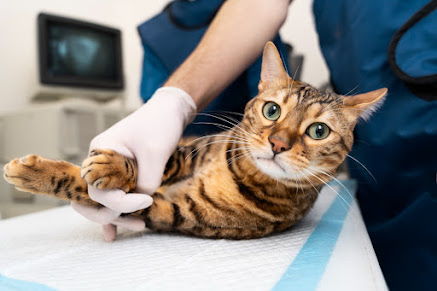How to Prevent Vomiting in Cats and Keep Your Cat Happy and Healthy
Causes of Vomiting in Cats:
Cat vomiting can arise from a myriad of reasons, some more benign than others. The most common causes include:
- Dietary Indiscretions: Cats are curious creatures and may ingest non-food items such as grass, plants, or small objects. These foreign bodies can irritate the gastrointestinal tract and lead to vomiting.
- Rapid Diet Changes: Abruptly changing your cat's diet can upset their stomach and result in vomiting. Slowly transitioning to a new diet is essential to avoid gastrointestinal distress.
- Food Allergies or Intolerances: Cats can develop allergies or sensitivities to certain ingredients in their food, leading to vomiting as one of the symptoms.
- Hairballs: Grooming is natural for cats, but it also means they ingest loose hair. This can accumulate in their stomachs, forming hairballs that are regurgitated through vomiting.
- Infections and Parasites: Viral, bacterial, or parasitic infections affecting the gastrointestinal tract can trigger vomiting in cats.
- Inflammatory Bowel Disease (IBD): IBD is a chronic condition causing inflammation of the intestines and stomach, leading to vomiting and other digestive issues.
- Pancreatitis: Inflammation of the pancreas can cause vomiting and abdominal pain in cats.
- Toxic Ingestion: Cats are susceptible to poisoning from ingesting toxic substances such as certain plants, medications, or chemicals.
- Gastrointestinal Obstruction: Objects or materials that cannot be digested or passed through the intestines can obstruct the digestive tract, leading to vomiting.
- Systemic Diseases: Some systemic conditions like kidney disease or liver disease can cause vomiting as a secondary symptom.
Symptoms of Vomiting in Cats:
Identifying the symptoms associated with vomiting is crucial in understanding your cat's overall health:
- Frequent or Persistent Vomiting: Occasional vomiting might be normal, but if your cat is vomiting frequently or continuously, it warrants attention.
- Changes in Appetite: A sudden loss of appetite or refusing to eat can be related to vomiting.
- Lethargy: If your cat appears unusually tired, weak, or lacks interest in their usual activities, it may be due to vomiting.
- Dehydration: Frequent vomiting can lead to dehydration, which can be observed through dry gums and sunken eyes.
- Weight Loss: Chronic vomiting can result in weight loss due to the inability to retain nutrients.
- Blood in Vomit: If you notice blood in your cat's vomit, seek immediate veterinary care as it could indicate a more serious issue.
Diagnosis and Treatment:
When dealing with vomiting in cats, a veterinarian will conduct a thorough physical examination and take a detailed medical history. They may also perform additional tests, including blood work, fecal examination, X-rays, or ultrasounds to pinpoint the underlying cause.
Treatment will depend on the diagnosis. For simple cases of dietary indiscretion or hairballs, temporary fasting and a bland diet might be sufficient. In other instances, treatment could involve medications to address infections, inflammation, or to manage other underlying health conditions.
Preventing vomiting in cats involves providing a consistent, well-balanced diet, keeping toxic substances out of reach, and regularly grooming to reduce hairballs.
In conclusion, while occasional vomiting is not uncommon in cats, frequent or severe vomiting should be taken seriously. Seeking prompt veterinary attention can help identify and treat underlying issues, ensuring your feline companion remains happy and healthy for years to come.






